More posts

Written by Southeast Primary Care Partners
Technology Integration: Enhancing Patient Care While Maintaining Independence
Technology in Healthcare: Improving Patient Care While Preserving Independence

Written by Southeast Primary Care Partners
Strategic Partnerships: A Smart Choice for Independent Primary Care
Discover why independent primary care practices are opting for strategic partnerships instead of acquisitions. Explore the benefits of maintaining autonomy, enhancing patient care, and achieving financial stability through collaboration.

Written by Southeast Primary Care Partners
Balancing Quality Patient Care and Administrative Efficiency
In primary care, physicians balance quality patient care with administrative demands. This guide offers strategies to boost efficiency and simplify workflows while maintaining care standards. Learn to leverage technology, optimize staff roles, and improve patient engagement for a more fulfilling practice.

Written by Southeast Primary Care Partners
The SPCP Difference – highlighting the individuals who advocate for providers and patients: A conversation with Eric Pfleger
The SPCP Difference – highlighting the individuals who advocate for providers and patients: A conversation with Eric Pfleger

Written by Southeast Primary Care Partners
The SPCP Difference – highlighting the individuals who advocate for providers and patients: A conversation with Dr. Danielle Lin
The SPCP Difference – highlighting the individuals who advocate for providers and patients: A conversation with Dr. Danielle Lin

Written by Southeast Primary Care Partners
Southeast Primary Care Partners Expands Geographic Footprint into Tennessee with Addition of Restore Health & Wellness
Southeast Primary Care Partners (SPCP), a primary care-focused medical group dedicated to achieving true value-based care everywhere, today announced its expansion into Tennessee and a new practice partnership with Restore Health & Wellness in Chattanooga. Led by Dr. Tye Young, DO, the primary care practice includes a dedicated team of healthcare professionals committed to providing patients with personalized care that considers a person's unique needs and aspirations.

Passage of Georgia's SafeHaven: Providing Emotional Support for Georgia's Healthcare Workers
Georgia bill passed to provide much-needed emotional support for healthcare workers

Written by Southeast Primary Care Partners
Tiffany Anderson Joins Southeast Primary Care Partners as Senior Vice President of Operations
Skilled Healthcare Operations Leader to Oversee Clinical Efficiency

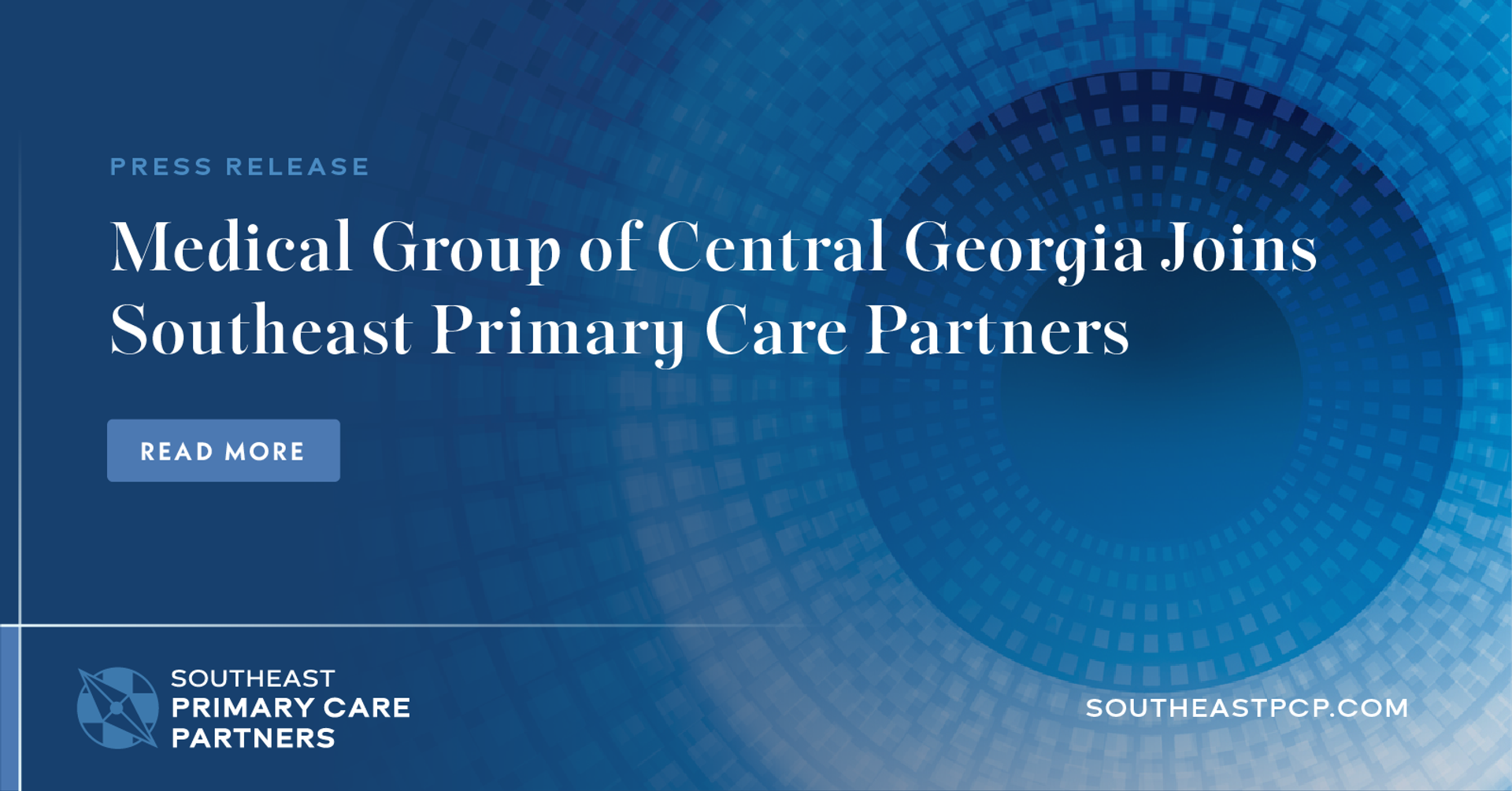
Written by Southeast Primary Care Partners
Medical Group of Central Georgia Joins Southeast Primary Care Partners
Southeast Primary Care Partners (SPCP), a primary care-focused medical group dedicated to achieving true value-based care everywhere, today announced a new practice partnership with Medical Group of Central Georgia.
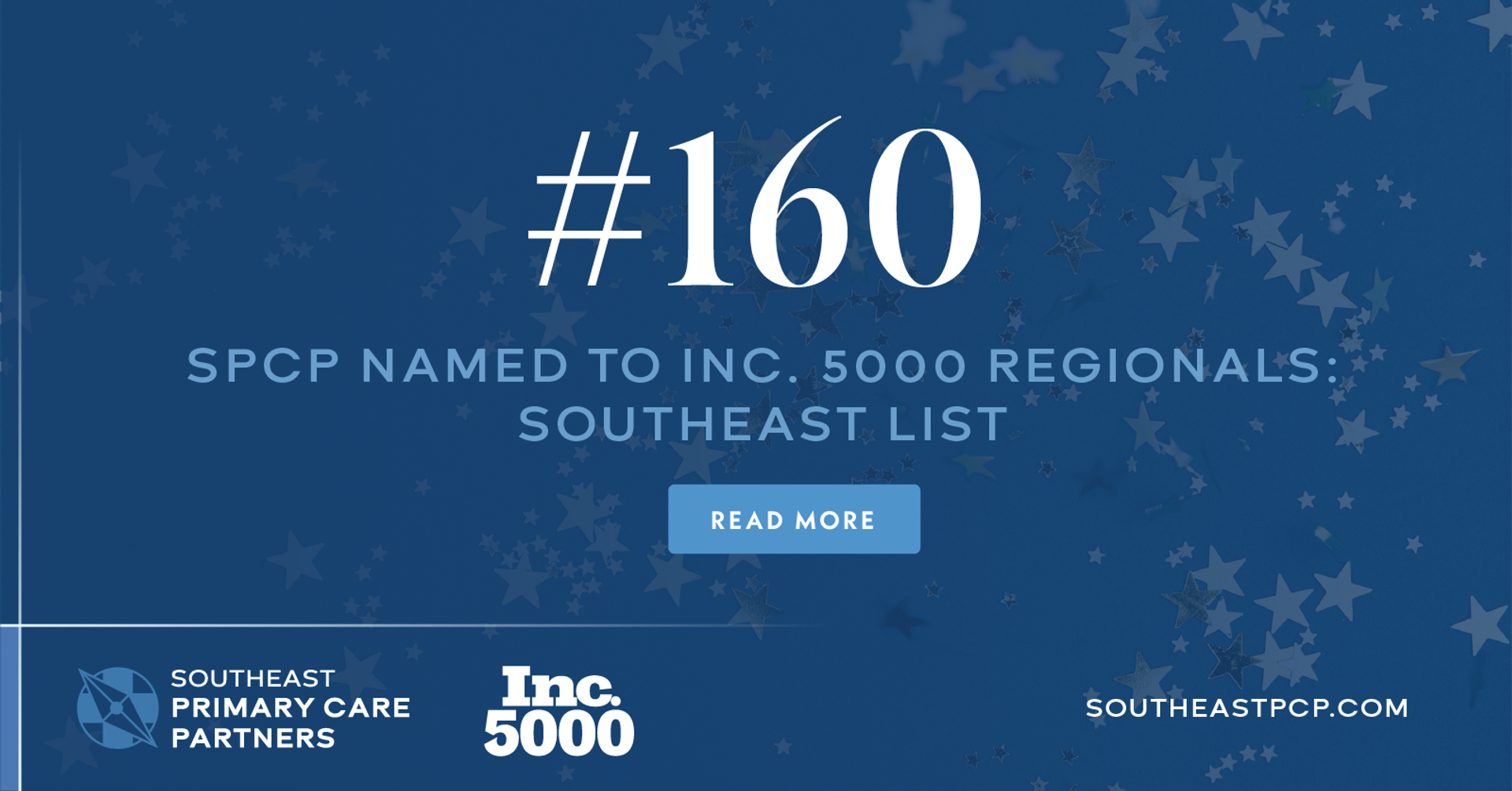
Written by Southeast Primary Care Partners
Southeast Primary Care Partners Ranks No. 160 on Inc. Magazine’s List of the Southeast Region’s Fastest-Growing Private Companies
Inc. magazine today revealed that Southeast Primary Care Partners (SPCP) is No. 160 on its fourth annual Inc. 5000 Regionals: Southeast list, the most prestigious ranking of the fastest-growing Southeast private companies, based in South Carolina, Kentucky, Tennessee, Georgia, Arkansas, Alabama, Mississippi, Louisiana, Florida, and Puerto Rico.

Written by Southeast Primary Care Partners
Southeast Primary Care Partners and Emory Healthcare Network align to offer coordinated care
SPCP aligns with EHN to improve patient care coordination.


Written by Craig Worland, Chief Development Officer
Craig's 2024 Industry Predictions
In 2024, there will be a surge of healthcare transactions from companies that would like to sell, but have been waiting on the market to improve. As interest rates peak and begin to fall, we will see a flurry of deals, some possibly below market prices, indicating a shift towards a buyer’s market.


Written by Craig Worland, Chief Development Officer
Craig's Reflections on the 2023 Healthcare Landscape
2023 was an interesting year for healthcare. With the swift rise of AI and its impact on every aspect of the industry to a renewed focus on rural health and the need to prioritize patients at every level, my head was like a swivel keeping up with the stories day to day. In January, I made a few predictions on how healthcare would shift in 2023.
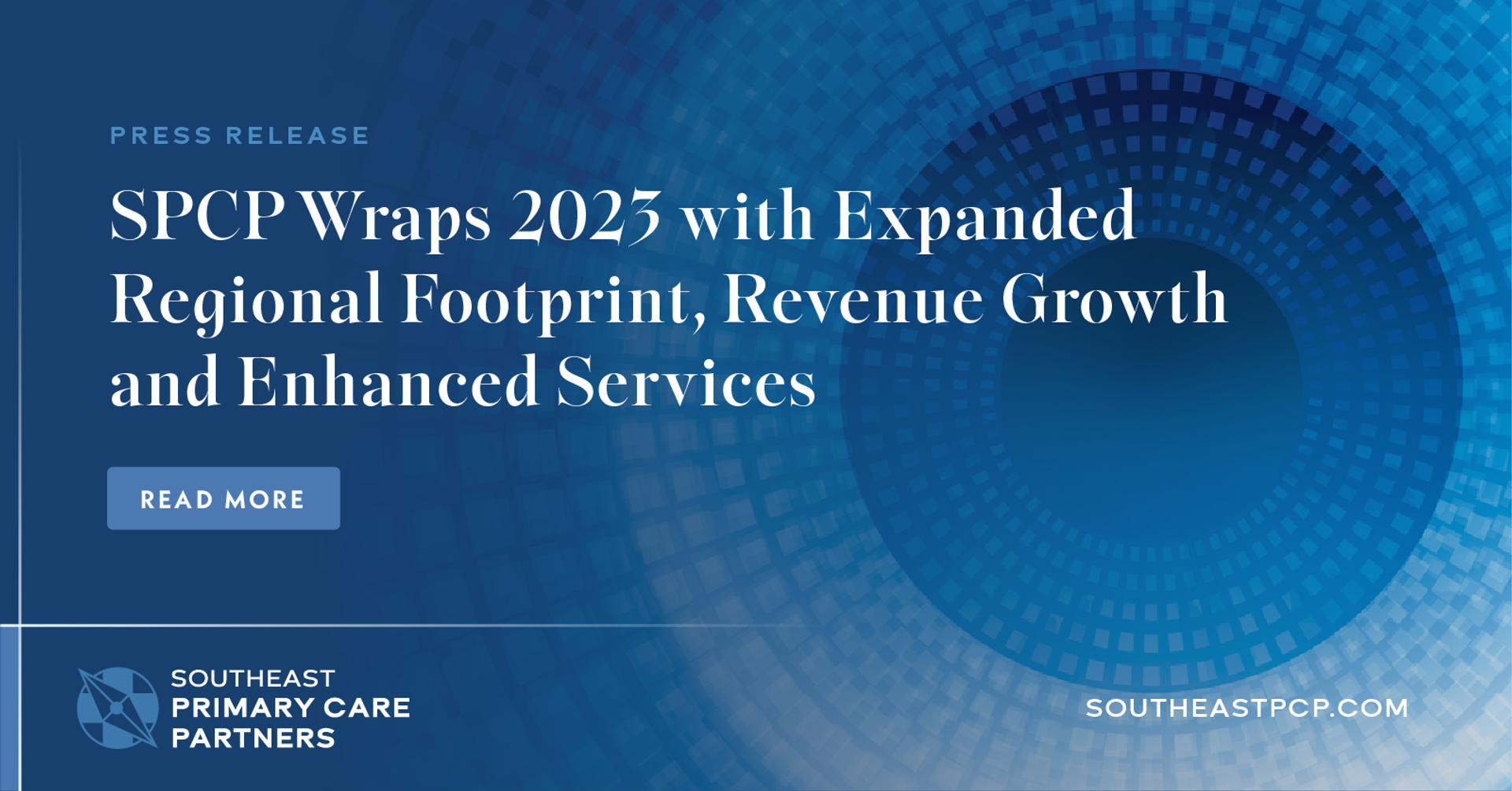
Written by Southeast Primary Care Partners
Southeast Primary Care Partners Wraps 2023 with Expanded Regional Footprint, Revenue Growth and Enhanced Services
Medical Group Continues Rapid Growth in the Southeast, Supporting Primary Care Physicians and Boosting Access to Proactive, Preventive and Community-based Care

Written by Southeast Primary Care Partners
Southeast Primary Care Partners Continues Alabama Expansion, Welcoming Keel & Associates
Primary Care-Focused Medical Group Continues to Improve Access to High-Quality Healthcare in the Southeast

Written by Southeast Primary Care Partners
SPCP's Craig Worland Named to Atlanta Business Chronicle's 40 Under 40
We are thrilled to share that Southeast Primary Care Partners' COO, Craig Worland, has been named to the Atlanta Business Chronicle's 40 Under 40 List!

Written by Southeast Primary Care Partners
Solving the Physician Shortage with International Med Students
Solving the Physician Shortage

Written by Southeast Primary Care Partners
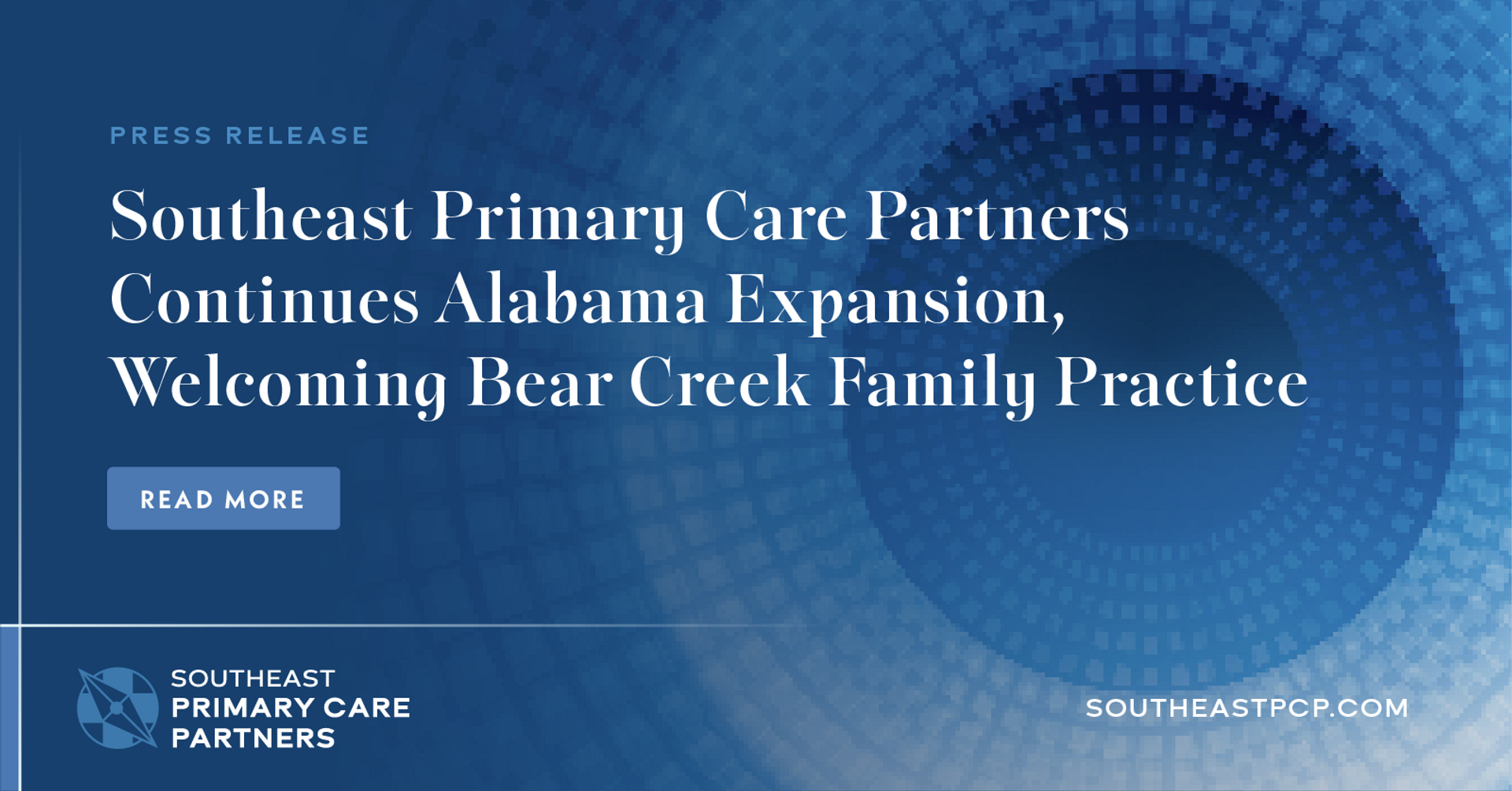
Written by Southeast Primary Care Partners
Southeast Primary Care Partners Continues Alabama Expansion, Welcoming Bear Creek Family Practice
Southeast Primary Care Partners, an Independent Primary Care Supergroup, Continues to Improve Access to Primary Care

Evaluation and Treatment of Low Back Pain in Adults
Evaluation and Treatment of Low Back Pain in Adults
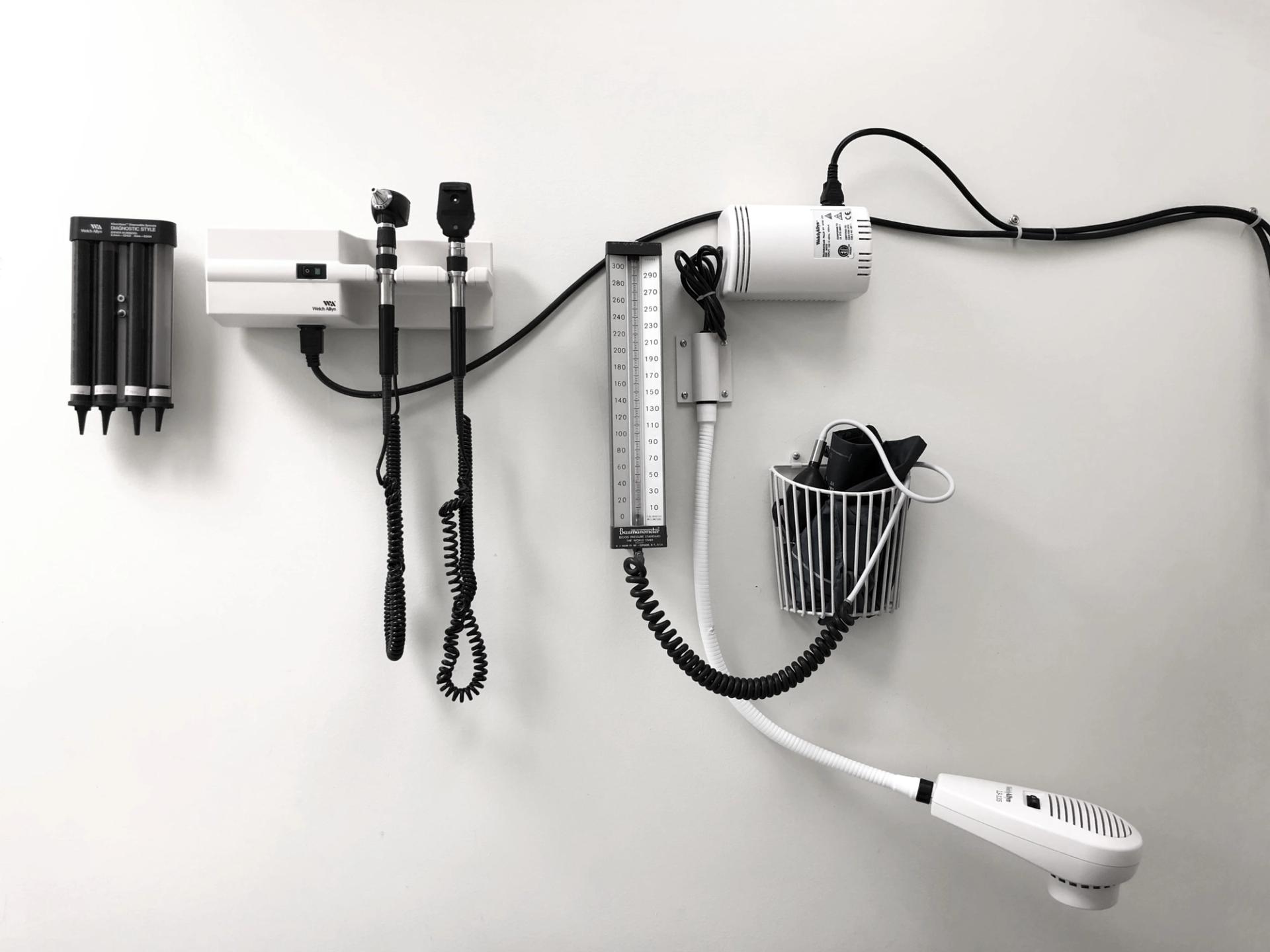

Written by Eric Lisle, Chief Executive Officer, President, Co-founder
America’s Sick Care System: Why We’re Failing and How Independent Primary Care Can Save Us
It’s time to face the harsh truth about healthcare in the United States: our system is failing us.


Written by Eric Lisle, Chief Executive Officer, President, Co-founder
Enhancing Access to Primary Care in Rural Areas: Bridging the Healthcare Gap
Access to primary care is a fundamental aspect of a well-functioning healthcare system. For people living in rural areas, there can be significant challenges in finding and accessing primary care services. Geographical isolation, limited healthcare infrastructure, and a shortage of healthcare professionals are some of the key obstacles faced by those in rural communities. However, with innovative strategies and collaborative efforts, we can work towards improving access to primary care and bridging healthcare gaps in rural areas.


Written by Craig Worland, Chief Development Officer
Reflections on the JP Morgan Nashville Healthcare Leadership Summit
By prioritizing the needs of our primary care physicians and providing them with the support they need, we can attract and retain top talent, leading to better patient care and overall success.

The Future of Physician-Owned Groups in Value-Based Healthcare
Value-based reimbursement will be driven by physician-owned groups that represent true partnerships and integration of practice management with patient care.

Staying Healthy in February: Tips from a Primary Care Physician
Are you struggling to stay healthy this February? Dr. David Hall, a primary care physician, shares his expert tips on how to beat the winter blues.

The Value and Values of the Primary Care Physician
As the healthcare system shifts towards a value-based model, the role of the primary care physician (PCP) has become increasingly important.


Written by Alex L. Hayman, FACHE, CHHR
The Benefits of Joining an Independent Medical Group
... it can be incredibly hard to keep up with the ever-changing landscape of healthcare. Staying up to date with policies, regulations, and technologies is a full-time job.


Written by Alex L. Hayman, FACHE, CHHR


Written by Alex L. Hayman, FACHE, CHHR
Breaking Free from Anxiety: A Guide to Taking Control
Anxiety can make you feel like you're trapped in your own mind, constantly worried and afraid. But don't worry, you're not alone in this battle!


Written by Alex L. Hayman, FACHE, CHHR
Challenges of Owning an Independent Physician Practice
Owning an independent physician practice comes with its own unique set of challenges.


Written by Alex L. Hayman, FACHE, CHHR
Cognitive Migraine Management: My Experience with Aphasia Migraine
My Experience with Aphasia Migraine



